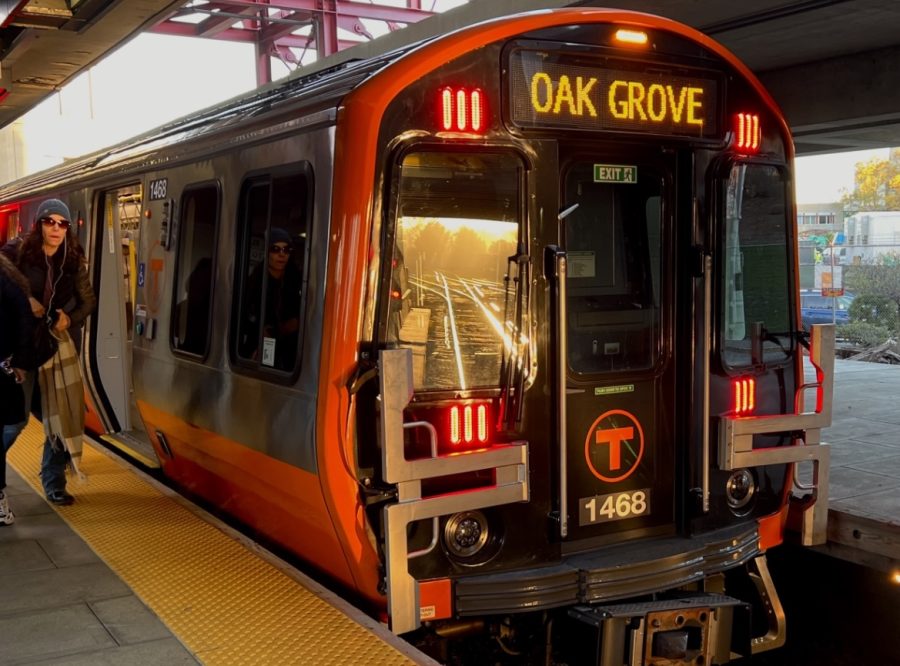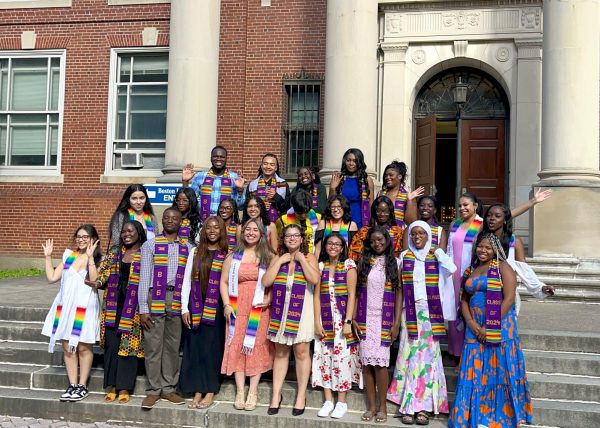The Orange Line Turns Sour on Riders
Following a 30-day systemwide shutdown, the Massachusetts Bay Transportation Authority Orange Line reopened on September 19 with controversial results.
The Orange Line, the third-busiest line of the MBTA rail systems, shut down for 30 days starting on August 19 in order to perform years’ worth of overdue maintenance and repairs. The MBTA updated the entire fleet of cars, replaced over 14,000 feet of rail and improved signals and infrastructures in tunnels and stations.
The shutdown aimed to provide time for the desperately needed changes to take place as soon as possible, which may have taken years otherwise. Although the MBTA provided replacement shuttle buses and shuttle-only lanes throughout the closure, the commute remained challenging for its 200,000 daily riders.
Many people were forced to find new routes to work or school, increasing the traffic of other lines that were already struggling after the return to maximum capacity following the decline of COVID-19. Eleanor Johnson (III), who frequently rode the Orange Line prior to the shutdown, says, “I basically had to change my whole route. The shuttles were very unreliable.”
The disruption caused other lines, including the Red and Green Lines, to experience massive delays of 20 minutes or more. The shutdown also put additional stress on Boston Public Schools’ yellow bus system, as WBUR-FM reported that only half of all buses arrived to schools on time at the beginning of the shutdown.
Even though the Orange Line has now reopened for full service, riders continue to struggle with increased wait times and slower trains. Johnson remarks, “It’s a little faster, but service is still horrible.” The Boston Globe reported that the Orange Line runs about 20 minutes slower after the shutdown. TransitMatters, a Boston-based public transportation advocacy group, found that it now takes nearly 50 minutes to travel from one end of the line to the other, ten minutes longer than prior to shut down.
This intense scrutiny is not new to the Orange Line. Years of neglect have left the line prone not only to delays, but to serious safety hazards as well. As Massachusetts senators Elizabeth Warren and Ed Markey have noted in their criticisms of the transit system, derailments and fires have become concerningly more common and demonstrate the need for significant change to the Orange Line. Many riders agree with the sentiment, such as Ilyass Chafiq (I), who describes the Orange Line as “ hell on Earth.”
Despite all of this, there remains some good news for average Orange Line riders. According to CBS Boston, the MBTA has eliminated some slowdown zones across the line, and will continue to do so as more menial maintenance is completed. In addition, Steve Poftak, the general manager of the MBTA, who announced that he will be stepping down in January 2023, said that the delays are only temporary. He attributed the infrequent arrivals to a staffing shortage and noted that the slow train speeds allow trains to “settle” onto the new tracks. He has said, however, that delays could continue well into December.
Although it has been inconvenient to its riders, the Orange Line shutdown has allowed for the much-needed upgrading and replacement of various infrastructures, including outdated cars from the 1980s. While riders continue to deal with delayed trains, the line is making progress, which will lead the way to a cleaner, faster and safer ride.







Dave • Nov 25, 2022 at 11:42 pm
Unfortunately the Orange line will continue to be unreliable due to its age! The MBTA decision makers need to consider replacing the line with new rapid transit technology! Such as what’s being done in Toronto Canada with the new Eglington and Scarborough subway extensions! Not to mention the Grand Paris Express in France!
The Globe needs to visit these projects and provide insight on this important subject.
The City of Boston and the surrounding communities deserve a world class transit systems!!